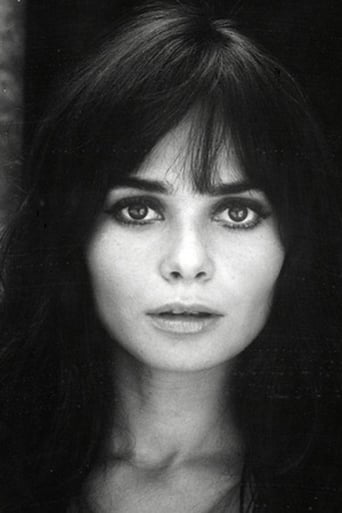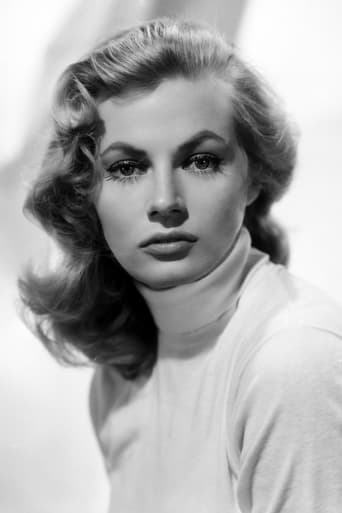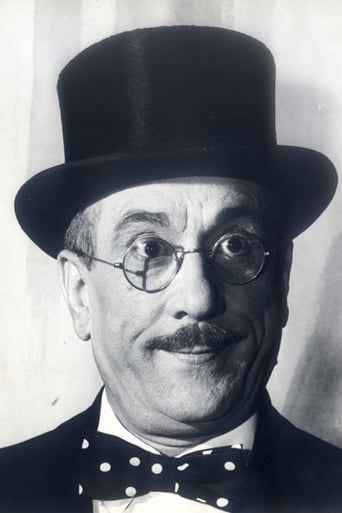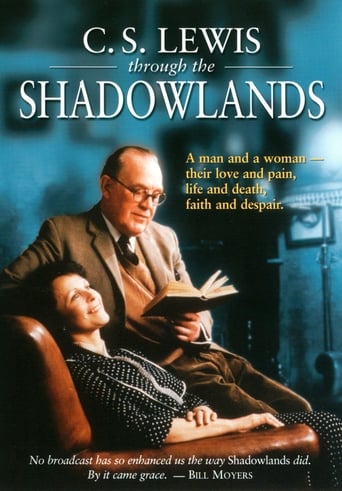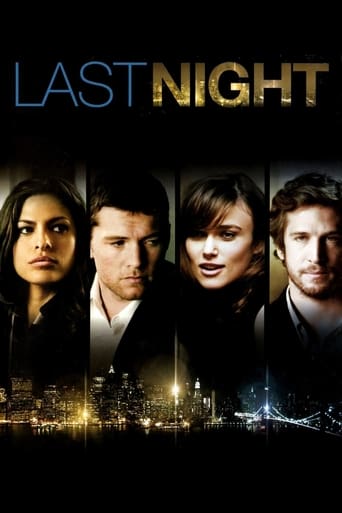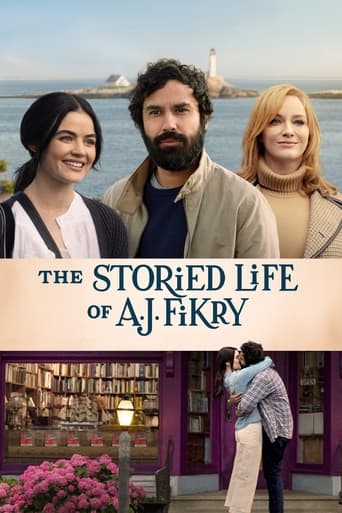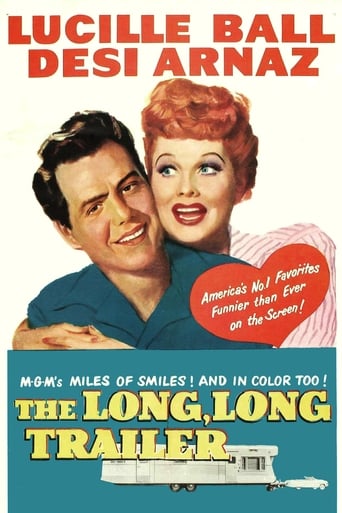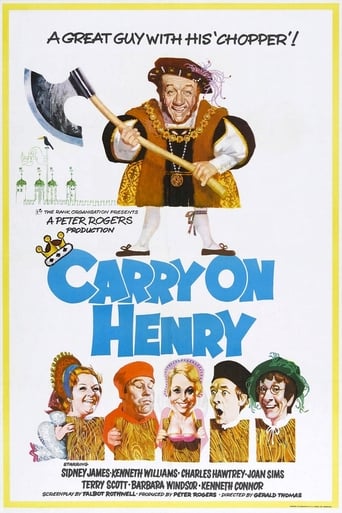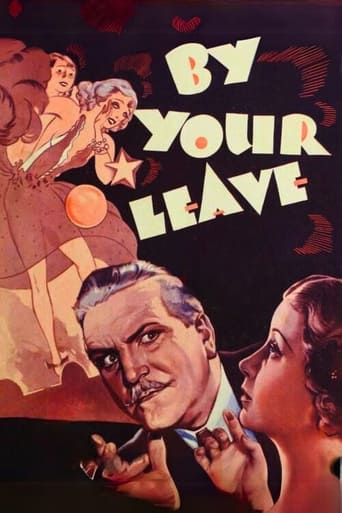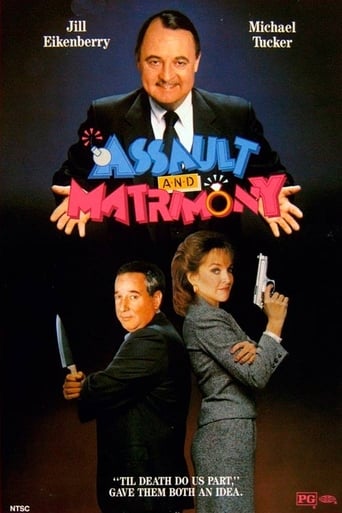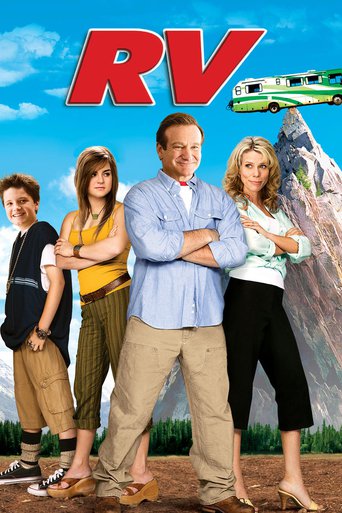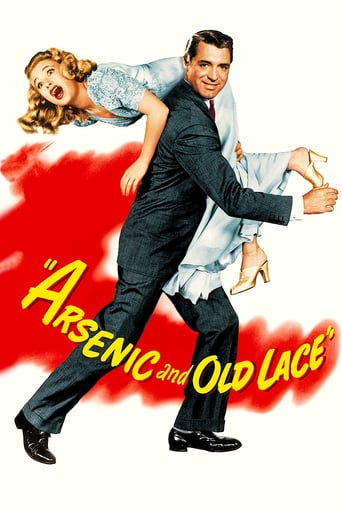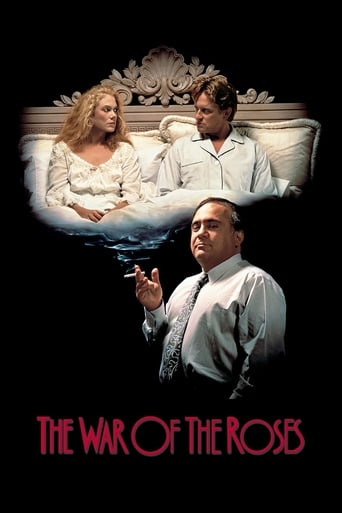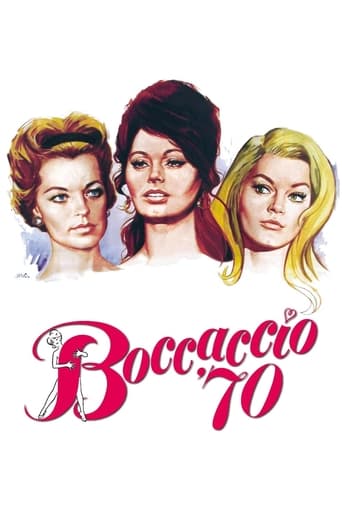
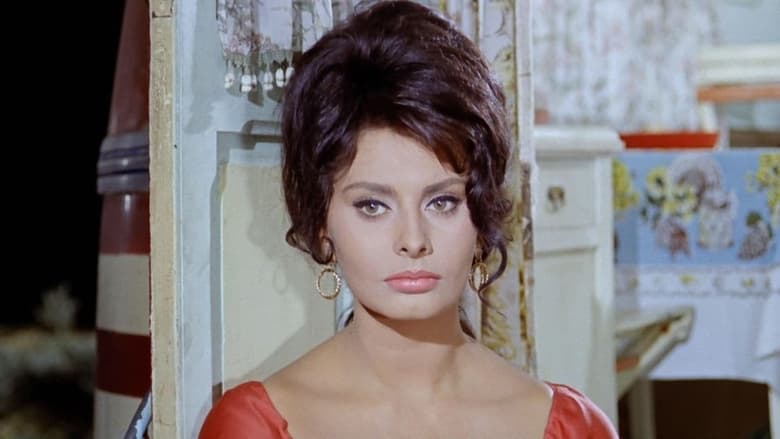
Boccaccio '70 (1962)
An anthology of four comic moral tales about the hypocrisies surrounding sex in 1960s Italy: frothy young love and office politics in the big city; milk advertisements that begin to haunt an aging prude; a trophy wife enduring her husband's very public affairs; a lucky ticket-holder at a small town fair.
Watch Trailer
Cast


Similar titles
Reviews
Simply A Masterpiece
I don't have all the words right now but this film is a work of art.
I like movies that are aware of what they are selling... without [any] greater aspirations than to make people laugh and that's it.
It is not deep, but it is fun to watch. It does have a bit more of an edge to it than other similar films.
Boccaccio '70 (1962) is a very heavy film, in my opinion.My interpretation of it is that the outward and blatant sexual aspect of each of the four episodes of this cinematic anthology is a mere superficial veneer, a literary artifice, if you will, that is used as a vehicle for a biting commentary on modern social life, a life disrupted and transformed by the emerging corporate and technological forces impinging upon the individual.Although the outward social situation portrayed in each episode appears to be so different from the others, it seems to me that there was, at some level, a unified coordination behind the production of this film, ensuring that the social commentary portrayed by the film as a whole film was consistent, in some respects. Yet, each individual episode voices this unified social commentary from its own unique perspective.The sexual aspect of the film as a whole is the common point in each episode that is used as a symbol of the basic humanity of the individual. Hence, it is during the execution of the sex act itself that the individual is stripped of all his assigned social roles, and their attendant assigned social personas, and where the individual is most closely in touch with his inner, true, genuine self. It is also during the very execution of the sex act where an individual can find a time in his life that is outside the scope, and the purview of impinging societal forces.This film was skillfully constructed to project a superficial appearance, greatly along outwardly sexual themes, to ensure the commercial viability of the film, a superficial appearance that would appeal to the masses of the ticket buying public who hunger for simple entertainment. Yet beneath the veil of this general public appeal, lies a carefully constructed harsh social commentary that provides much fodder for intellectual, and artistic analysis for the minority of film viewers who are inclined to such reflective thinking.Boccaccio '70 (1962) is a truly remarkable cinematic achievement for many different reasons, at least in my opinion.
Boccaccio 70 always struck me as a great title for a film - perhaps because it wasn't afraid of its built in obsolescence. It hasn't been on UK telly since around 1974 - can someone – anyone - please, please, please explain this curious phenomenon to me. What we have here is four short films from four top Italian directors of the time (the time actually being 1961 - another hilarious aspect of the title) including Federico Fellini and Luchino Visconti. The picture quality is superb and may even be mastered from the original negative. The first film of the four is the stand out for me - the director paints a hilarious yet hideous view of the popularist theory of 1961 - population explosion. The scene at the swimming pool really must be seen to be believed - and be seen in colour on the largest screen you can access - the director anticipated High Definition by half a century. The dialogue is Italian with English subtitles. Well worth a look - even though it'll take you 3 hours and 23 minutes to watch the whole film. The release I bought is by umbongo films.
Though an ardent Fellini fan, it took me some time before getting round to buying this 'portmanteau' of four separate stories from Italy's leading directors of the time.Which was actually 1962 and not the 1970 that the title suggests. Portraying love, sex and lust in the 'modern age' hence the futuristic date in the title each part is 50 minutes long and in my experience, is best watched in two sittings. You'll probably have read that as well as Fellini, Vittorio de Sica, Luchino Visconti and Mario Monicelli, all but the last being very well known to knowledgeable film buffs.It takes nine writers, including input and ideas from the directors themselves to mould the very different stories here. The women definitely hold the upper hand in every one of them, loftily placed on pedestals - busty Anita Ekberg in Fellini's; Romy Schneider in Visconti's and Sophia Loren in de Sica's.The first segment, from Monicelli, is actually a bonus on the DVD as it was apparently cut from theatrical releases shown outside Italy. But, actually, that part is a good setting point - ordinary young female factory workers who live with the worry of everyday life and love and the hanging threat of old traditions, the Church and ruthless employers who attempt to quell their youthful desire for sex. Some scenes, with busy trams and bustling street scenes at rush-hour, remind me of the earlier classic 'Bicycle Thieves'.Visconti's part is a talky - and fairly boring - 'discussion', fixed to one nice, very posh apartment. The subject is now rather ordinary, probably unlike then, that I'm wanting more substance and variety. There again, I never was 'into' Visconti - high on style and period detail but low on flair and exuberance, at least compared to the others.Fellini was in the late autumn of his career at this point and this manifests itself by him displaying some trademark vaguely tasteless wit, swipes at Catholicism and Authority but surprising us with some truly inspiring set-pieces. His first foray into colour, it's a very bumpy and uneven ride, bounding from barely watchable to reassuringly great and familiar.A young and very shapely Sophia Loren, under De Sica, is used to portray many themes in neo-realist Italian cinema - Life itself. Outdoor fairs, sultry night-times when lovers and larger-than-life characters come out to play and village pettiness all affect this red-dressed temptress, who, like so many, yearn for greater and better things. It's at a touch funny and sad, but oddly, not as compelling as it should be. Though never the greatest actress, Loren doesn't let the side down, but her raw physical beauty always means that is what is seen first, before emotional depth.Critical reviews vary - some quarters saying that it's a lot of wasted talent. My immediate response is that all the directors and key players have done far better work and those seeking them out for the first time should look elsewhere - I'd hate for anyone to be put off potentially brilliant Italian cinema by them watching this and being disappointed.However, for Completists, like me, who have seen and loved these great director's best films, then the draw will become insufferably great and purchase will become inevitable. At least this quality transfer Mr Bongo release allows us to sample this odd collection at a good value price.
The idea behind "Boccacio '70" was to update some of the stories in Boccacio's Decameron into short segments directed by some of the top Italian directors, showcasing four actresses at the center of each story. The end result was not as interesting as the concept behind the idea. Thus, the resulting stories are not what could have been expected of directors like Federico Fellini, Vittorio DeSica, Luchino Visconti and Mario Monicelli.The first story "Luciana e Renzo" is directed by Mario Monicelli. Some of the contributors to the screen play included Italo Calvino, one of Italy's best writers. The story is simple. Luciana, a young woman working in the accounting department of a large firm, is going to get married to Renzo, who also happens to work for the company. The only problem is no marriage between employees is allowed.The film follows them as they use their lunch time to go to a remote church and get married. The newlyweds must share her parent's small apartment. The head of the department, who obviously likes the lovely Luciana, decides to hit on her when he sees her at a public swimming pool. Things go from bad to worse until the boss finds Luciana embracing Renzo. An idea comes to Luciana's mind: If they both get fired, the separation bonus will let them put a down payment for an apartment of their own.Beautiful Marisa Solinas is Luciana and Germano Gilioli plays Renzo.The next story, "Le tentazioni del dottor Antonio" was conceived by Federico Fellini, who also wrote the screen play with Tullio Pinelli, a frequent collaborator, and others. The story is about Antonio a prudish man who is shocked when an enormous advertising ad is erected in a space facing his apartment. In it, a blown up figure of the actress Anita Ekberg is shown in a suggestive pose holding a glass of milk.No matter what Dr. Antonio does, he is unable to get a friendly ear to help his cause. He becomes so obsessed that one day the gigantic figure in the billboard comes to haunt him. Anita Ekberg, towers over him and teases him mercilessly. What to do? In spite of his protestations Dr. Antonio, who perhaps has not seen a woman this close in his life, is rendered impotent to do anything against a goddess like Anita Ekberg.The great Peppino DiFilippo appears as Dr. Antonio and the real Anita Ekberg, who made a splash in Fellini's "La Dolce Vita" (no pun intended), have some fine moments in the movie.The third story "Il Lavoro", directed by Luchino Visconti, presents us with Conte Ottavio, an impoverished nobleman married to the rich Pupe, the daughter of an extremely rich man. Ottavio, who has been surprised by paparazzi with a high class prostitute, has been shown in all of the tabloids in compromising positions. Pupe, who at the start of the film seems to be missing, appears in her own room. She obviously loves the lecherous husband and has made up her mind to begin earning her own living in a regular job. Ottavio, who pleads with her not to do it, realizes his financial dependence on Pupe will suffer. Pupe demands the same kind of payment he made to the call girl. At the end, we see as Ottavio is writing a check as he comes over to Pupe.The fabulous Romy Schneider was excellent as Pupe and Tomas Millian makes a great appearance.The last story, "La riffa", directed by Vittorio DeSica and written by Cesare Zavattini, takes us to a small town where Zoe, a beautiful woman who has a shooting gallery in a carnival must make ends meet. Her sister, who is having a baby, needs money that she doesn't have, so she ideates a raffle in which she will be the prize. Needless to say, all the men in town buy all the chances. The meek sacristan is the winner, but when he comes to claim his prize, Gaetano, who is secretly in love with Zoe, will not let the sacristan get the lovely Zoe.Sophia Loren is marvelous as the tart-tongued Zoe. She had worked with Mr. DeSica before and she gives a wonderful reading. Luigi Giuliani is Gaetano and Alfio Vita plays the sacristan."Boccacio '70", the film, and the writer Boccacio showed they were ahead of its times in presenting strong women taking charge of their destinies.


